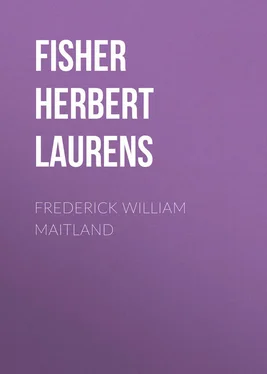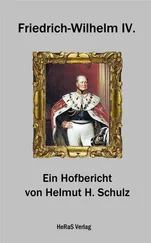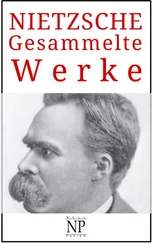Herbert Fisher - Frederick William Maitland
Здесь есть возможность читать онлайн «Herbert Fisher - Frederick William Maitland» — ознакомительный отрывок электронной книги совершенно бесплатно, а после прочтения отрывка купить полную версию. В некоторых случаях можно слушать аудио, скачать через торрент в формате fb2 и присутствует краткое содержание. Жанр: foreign_antique, foreign_prose, на английском языке. Описание произведения, (предисловие) а так же отзывы посетителей доступны на портале библиотеки ЛибКат.
- Название:Frederick William Maitland
- Автор:
- Жанр:
- Год:неизвестен
- ISBN:нет данных
- Рейтинг книги:4 / 5. Голосов: 1
-
Избранное:Добавить в избранное
- Отзывы:
-
Ваша оценка:
- 80
- 1
- 2
- 3
- 4
- 5
Frederick William Maitland: краткое содержание, описание и аннотация
Предлагаем к чтению аннотацию, описание, краткое содержание или предисловие (зависит от того, что написал сам автор книги «Frederick William Maitland»). Если вы не нашли необходимую информацию о книге — напишите в комментариях, мы постараемся отыскать её.
Frederick William Maitland — читать онлайн ознакомительный отрывок
Ниже представлен текст книги, разбитый по страницам. Система сохранения места последней прочитанной страницы, позволяет с удобством читать онлайн бесплатно книгу «Frederick William Maitland», без необходимости каждый раз заново искать на чём Вы остановились. Поставьте закладку, и сможете в любой момент перейти на страницу, на которой закончили чтение.
Интервал:
Закладка:
Before the fateful meeting with Vinogradoff at Oxford, Maitland had made friends with Leslie Stephen. In 1880 he joined "the goodly company, fellowship or brotherhood of the Sunday tramps," which had been founded in the previous year by Stephen, George Crome Robertson, the Editor of Mind , and Frederick Pollock. "The original members of the Society about ten in number were for the most part addicted to philosophy, but there was no examination, test, oath or subscription, and in course of time most professions and most interests were represented." The rule of the Club was "to walk every other Sunday for about eight months in the year," and so long as Maitland lived in London he was a faithful member of that strenuous company. A certain wet Sunday lived in his memory and, though he did not know it, lived also in the memory of Leslie Stephen. "I was the only tramp who had obeyed the writ of summons, which took the form of a postcard. When the guide (we had no 'president,' certainly no chairman, only so to speak, a 'preambulator') and his one follower arrived at Harrow station, the weather was so bad that there was nothing for it but to walk back to London in drenching rain; but that day, faithful alone among the faithless found, I learnt something of Stephen, and now I bless the downpour which kept less virtuous men indoors." That wet Sunday made Maitland a welcome guest at the Stephen's house; and it brought other happiness in its train. In 1886 Maitland was married in the village church of Brockenhurst, Hants, to Florence Henrietta, eldest daughter of Mr Herbert Fisher, some time Vice Warden of the Stannaries, and niece of Mrs Leslie Stephen. Two daughters, the elder born in 1887, and the younger in 1889, were the offspring of the marriage.
III
Meanwhile Maitland had been recalled from London to his old University. The reading which had been "very dear to him" when he took the first plunge into London work, had become dearer in proportion as the opportunities for indulging in it became more restricted. He was earning an income at the bar which, though not large, was adequate to his needs, but a barrister's income is uncertain and Maitland may have felt that while he had no assured prospect of improving his position at the bar, the life of a successful barrister, if ever success were to come to him, would entail an intellectual sacrifice which he was not prepared to face. Accordingly in 1883 he offered himself for a Readership in English Law in the University of Oxford, but without success. A distinguished Oxford man happened to be in the field and the choice of the electors fell, not unnaturally, upon the home-bred scholar. But meanwhile a movement was on foot in the University of Cambridge to found a Readership in English Law. In a Report upon the needs of the University issued in June, 1883, the General Board of Studies had included in an appendix a statement from the Board of Legal Studies urging that two additional teachers in English Law should be established as assistants to the Downing Professor. Nothing however was done and the execution of the project might have been indefinitely postponed but for the generosity of Professor Henry Sidgwick, who offered to pay £300 a year from his own stipend for four years if a Readership could be established. Sidgwick's action was clearly dictated by a general view of the educational needs of the University, but he had never lost sight of his old pupil and no doubt realised that Maitland was available and that he was not unlikely to be elected. The Senate accepted the generous offer, the Readership was established, and on November 24, 1884, Maitland was elected to be Reader of English Law in the University of Cambridge. In the Lent term of 1885 he gave his first course of lectures on the English Law of Contracts.
Cambridge offered opportunities for study such as Maitland had not yet enjoyed. A little volume on Justice and Police, contributed to the English Citizen series and designed to interest the general reading public, came out in 1885, and affords good evidence of Maitland's firm grasp of the Statute book and of his easy command of historical perspective. But this book, excellent as it is, did not represent the deeper and more original side of Maitland's activity any more than an admirable series of lectures upon Constitutional History which were greatly appreciated by undergraduate audiences but never published in his lifetime. The Reader in English Law was by no means satisfied with providing excellent lectures covering the whole field of English Constitutional history, though he had much that was fresh and true to say about the Statutes of the eighteenth century and about the degree to which the theories of Blackstone were applicable to modern conditions, and though he drew a picture for his undergraduate audience which in some important respects was closer to fact than Walter Bagehot's famous sketch of the English Constitution published while Maitland was an Eton boy. Text book and Lectures were but interludes in the main operations of the campaign against the unconquered fastnesses of medieval law. First came a remarkable series of articles contributed to the Law Quarterly Review upon the medieval doctrine of seisin which Maitland's sure insight had discerned to be the central feature in the land law of the Norman and Angevin period: and then in 1887 Bracton's Note Book.
"Twice in the history of England has an Englishman had the motive, the courage, the power to write a great readable reasonable book about English Law as a whole." The task which William Blackstone achieved in the middle of the eighteenth century, Henry de Bratton, a judge of the King's Court, accomplished in the reign of Henry III. His elaborate but uncompleted treatise De Legibus et Consuetudinibus Angliæ , composed in the period which lies between the legal reforms of Henry II. and the great outburst of Edwardian legislation, while the Common law of England was still plastic and baronage and people were claiming from the King a stricter observance of the great Charter, is naturally the most important single authority for our medieval legal history. Though influenced by the categories and scientific spirit of Roman Law, Henry de Bratton was essentially English, essentially practical. His book was based upon the case law of his own age — Et sciendum est quod materia est facta et casus qui quotidie emergunt et eveniunt in regno Angliæ – and especially upon the plea-rolls of two contemporary judges, Walter Raleigh and William Pateshull. An edition in six volumes executed for the Rolls Series by Sir Travers Twiss had been completed in 1883, the year before Maitland paid his first visit to the Record Office and discovered the plea-rolls of the County of Gloucester; but the text was faulty and far from creditable to English scholarship.
On July 19, 1884, Professor Vinogradoff, "who in a few weeks" wrote Maitland, "learned, as it seems to me, more about Bracton's text than any Englishman has known since Selden died," published a letter in the Athenæum drawing attention to a manuscript in the British Museum, which contained "a careful and copious collection of cases" for the first twenty-four years of Henry III., a collection valuable in any case, since many of the rolls from which it was copied have long since been lost, but deriving an additional and peculiar importance from the probability that it was compiled for Bracton's use, annotated by his own hand and employed as the groundwork of his treatise. Yet, even if the connection with Bracton could not be established, a manuscript containing no fewer than two thousand cases from the period between 1217 and 1240 was too precious a discovery to be neglected. Here was a mass of first-hand material, valuable alike for the genealogist, the lawyer, the student of social history: – glimpses of archaic usage, of local custom, evidence of the spread of primogeniture, important decisions affecting the status of the free man who held villein lands, records of villein service, vivid little fragments of family story, some of it tragic, some of it squalid, as well as passages of general historical interest, entries concerning "the partition and therefore the destruction of the Palatinate of Chester" or the reversal of the outlawing of Hubert de Burgh the great justiciar who at one time "held the kingdom of England in his hand."
Читать дальшеИнтервал:
Закладка:
Похожие книги на «Frederick William Maitland»
Представляем Вашему вниманию похожие книги на «Frederick William Maitland» списком для выбора. Мы отобрали схожую по названию и смыслу литературу в надежде предоставить читателям больше вариантов отыскать новые, интересные, ещё непрочитанные произведения.
Обсуждение, отзывы о книге «Frederick William Maitland» и просто собственные мнения читателей. Оставьте ваши комментарии, напишите, что Вы думаете о произведении, его смысле или главных героях. Укажите что конкретно понравилось, а что нет, и почему Вы так считаете.












